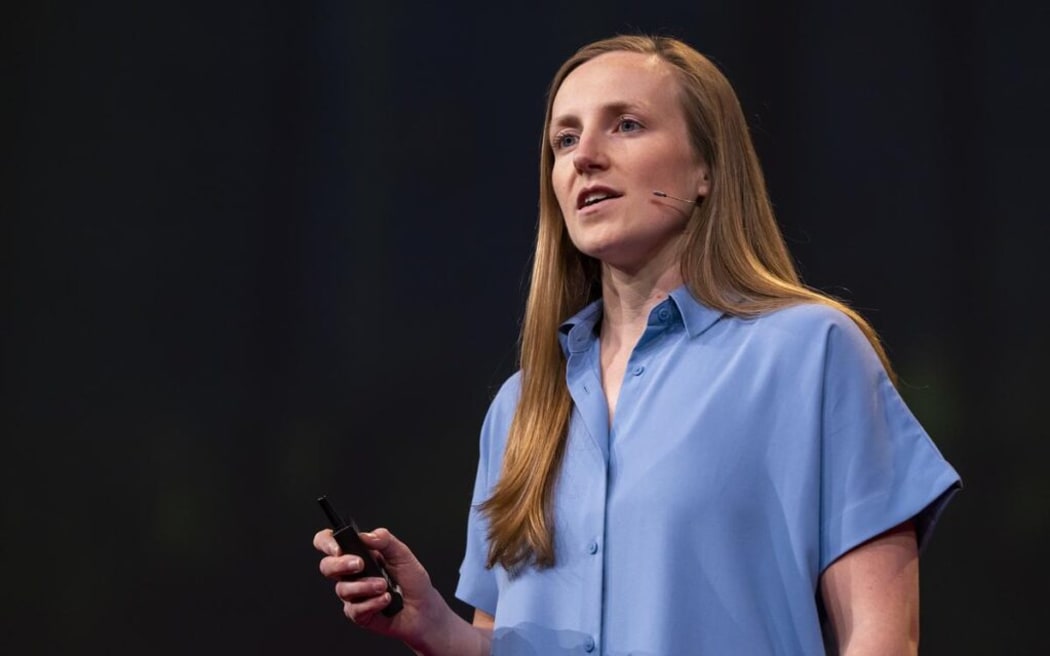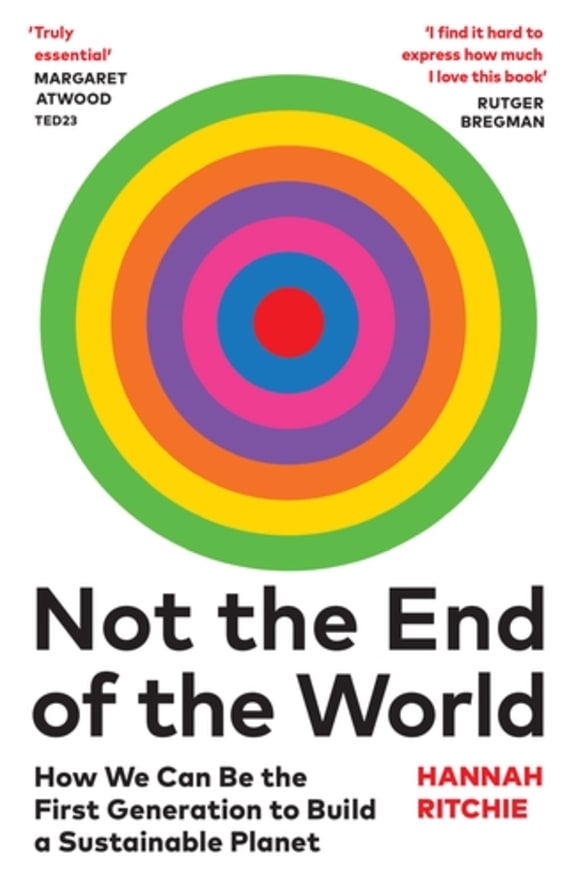While she was writing her book Not the End of the World: How We Can Be the First Generation to Build a Sustainable Planet, Dr Hannah Ritchie had a picture of her younger self by her computer.
It was a reminder, she tells Jesse Mulligan, of a time when she felt the situation the world was hopeless – a view she does not embrace now.
Ritchie is a researcher at Oxford University and deputy editor of the online publication Our World in Data and says she is cautiously optimistic this generation will leave the environment better than it found it.

Hannah Ritchie Photo: Ryan Lash/TED
“I think my younger self was very much in this place where I felt like there was nothing we can do about this, it was too late to do anything, and my future would just get worse and worse and worse. And I think I think a lot of people feel like that today.
“And I think that feeling is entirely valid. But I want to push back on that and say, no, there are solutions out there. We are making progress, let's think about how we can accelerate them.”
Her cautious optimism was sparked by, among other things, TED talks given by Swedish physician Hans Rosling, she says.
“He didn't really cover environmental metrics, but he covered social and human wellbeing trends, and they've all been getting better. The world is still very unequal, but the world has been getting much, much better.
“And I think for me, that was a bit of a wake-up call that not everything was getting worse. And if it's possible for us to make progress on that, then why can we not translate that into progress on the environment?”
One cause for optimism is that clean energy production is cheaper than ever, she says.
“I'm still really concerned about the climate crisis, that doesn't go away. But now I can see that the solutions are there, they're getting better and better. They're getting cheaper and cheaper.
“And I think that we now have a really unique opportunity to deploy them at scale, and at speed.”
If you frame yourself as an optimist, you can sound naïve, she says.
“Like you just see the world as this amazing place and it's going to continue to get better.
“And I think if you are kind of pessimistic or cynical, you’re seen as more logical or like you have wisdom that optimists don't have.”
Although this is untrue, blind optimism is no better than pessimism, she says.

Not The End of the World book cover Photo: supplied
“What I frame is a kind of cautious optimism or urgent optimism, the understanding that things can get better, there are solutions, if we take them, we can make the world a better place. So, it's more about driving active optimism than this kind of complacent optimism where we just sit and do nothing.”
There has been a move from global heating denialism to it’s too late to do anything about it, she says.
“I think both extremes there lead to inaction. So, what I'm trying to push back against is this feeling of it's too late. And there's nothing we can do about it. Because we can, there are solutions there.
“And I think we need to stop viewing climate change as a kind of binary, either we stop climate change, or it's the end of the world. And in reality, the most likely outcome is somewhere in the middle.
“And there's a really broad spectrum of outcomes there, ranging from pretty bad to really, really extremely bad. But where we land on that spectrum is completely up to us. And it's about the actions that we take today.”
We often hear about tipping points in relation to climate change but tipping points can work in the in the other direction, Ritchie says.
“I think we often also can see a possibility of what we call positive social tipping points. Especially the technological trends. The mistake that people often make is they assume that they will grow linearly. So, they look at how solar or wind or electric vehicles are growing and if you just draw a linear line from that, it looks very bad. Like it will take a really long time for these solutions to scale.
“But actually, these solutions often don't follow a linear trend, they would follow what we'd call an S curve trend, where initially you get very slow uptake, but then you hit a sort of tipping point.
“From there, growth can actually be very fast, in some sense, almost exponential. And I think in many of these solutions, we actually are starting to kind of hit that tipping point where they can grow very, very quickly.”

